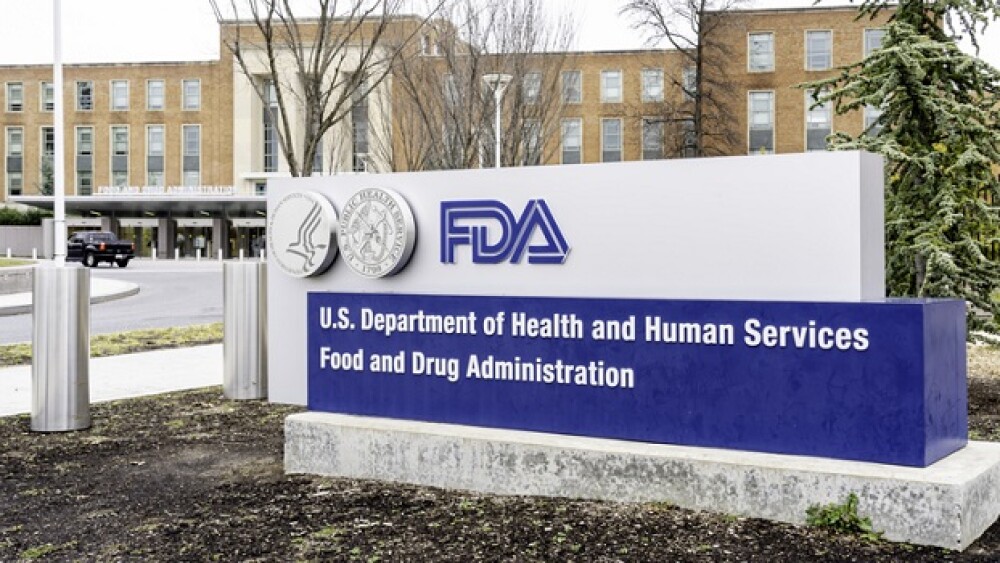The U.S. regulator Monday approved the Beyfortus single-dose monoclonal antibody, developed jointly by the two companies, for the pediatric prevention of respiratory syncytial virus.
Pictured: FDA sign at its headquarters in Washington DC/iStock, JHVEPhoto
On Monday, the FDA announced approval of Sanofi and AstraZeneca’s monoclonal antibody drug Beyfortus (nirsevimab) for the preventative treatment of respiratory syncytial virus in infants entering their first season of RSV, and children up to 24 months old at severe risk of RSV infection entering their second RSV season.
The drug, which was unanimously recommended for approval by an FDA advisory committee last month, is a single-dose monoclonal antibody designed to provide protection against RSV in newborns and infants through an entire RSV season. It’s also only one of two treatments approved in the U.S. for high-risk children, the other being Synagis (palivizumab), which was approved in 1998 and is given as a monthly injection.
The MELODY trial found that Beyfortus reduced the incidence of lower respiratory tract infection caused by RSV that required medical attendance by nearly 75%, while reducing the incidence of hospitalization by about 60%. Results from the HARMONIE study found even more promising results, with hospitalization going down about 83% after Beyfortus treatment.
The virus remains one of the most prevalent dangers children face in their first year of life, according to the CDC. “Virtually all children get an RSV infection by the time they are two years old,” the agency says on its website. Children under six months old are among those at the greatest risk, with 1% to 2% of those infected needing to be hospitalized. Each year, on average, RSV causes hospitalizations for between 60,000 to 80,000 children.
The FDA’s decision to approve Beyfortus, jointly developed by Sanofi and AstraZeneca, follows recent regulatory approvals around the world. The European Union and the UK approved the monoclonal antibody in late 2022, while Canada approved the drug in April 2023. All three countries have also granted Beyfortus market authorization. It is also currently making its way through the regulatory approval process in China and Japan, among other countries.
The drug development partnership between Sanofi and AstraZeneca started back in 2017. The deal splits responsibilities, with AstraZeneca taking charge of the development and manufacturing, while Sanofi is handling the commercialization and revenue recording. However, the companies are sharing profits and costs, except in the U.S. where Sanofi is taking the full haul as part of its business operating income.
Beyfortus will be made available in the U.S. ahead of the upcoming 2023-2024 RSV season, Sanofi said in its announcement on Monday.
Connor Lynch is a freelance writer based in Ottawa, Canada. Reach him at lynchjourno@gmail.com.





